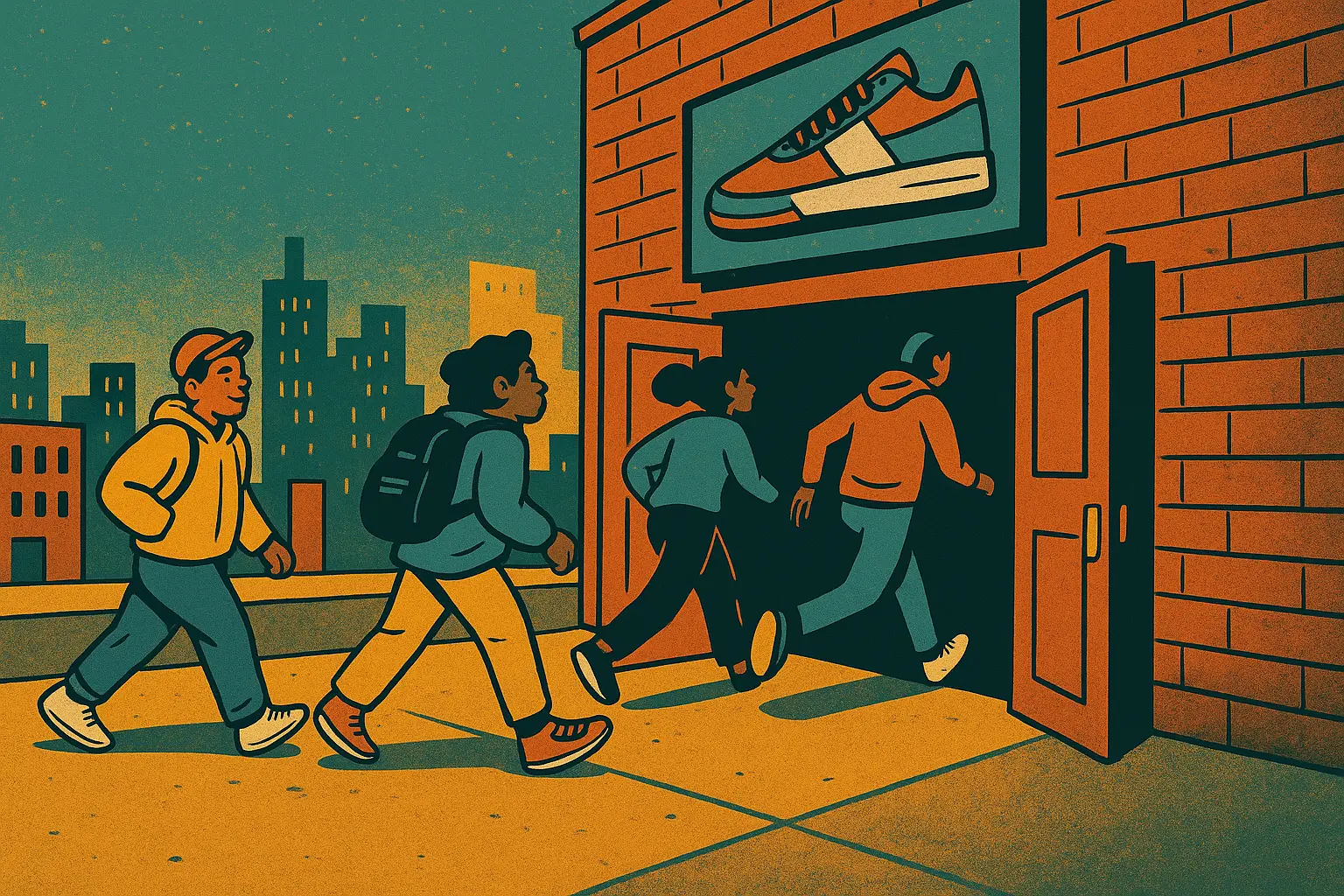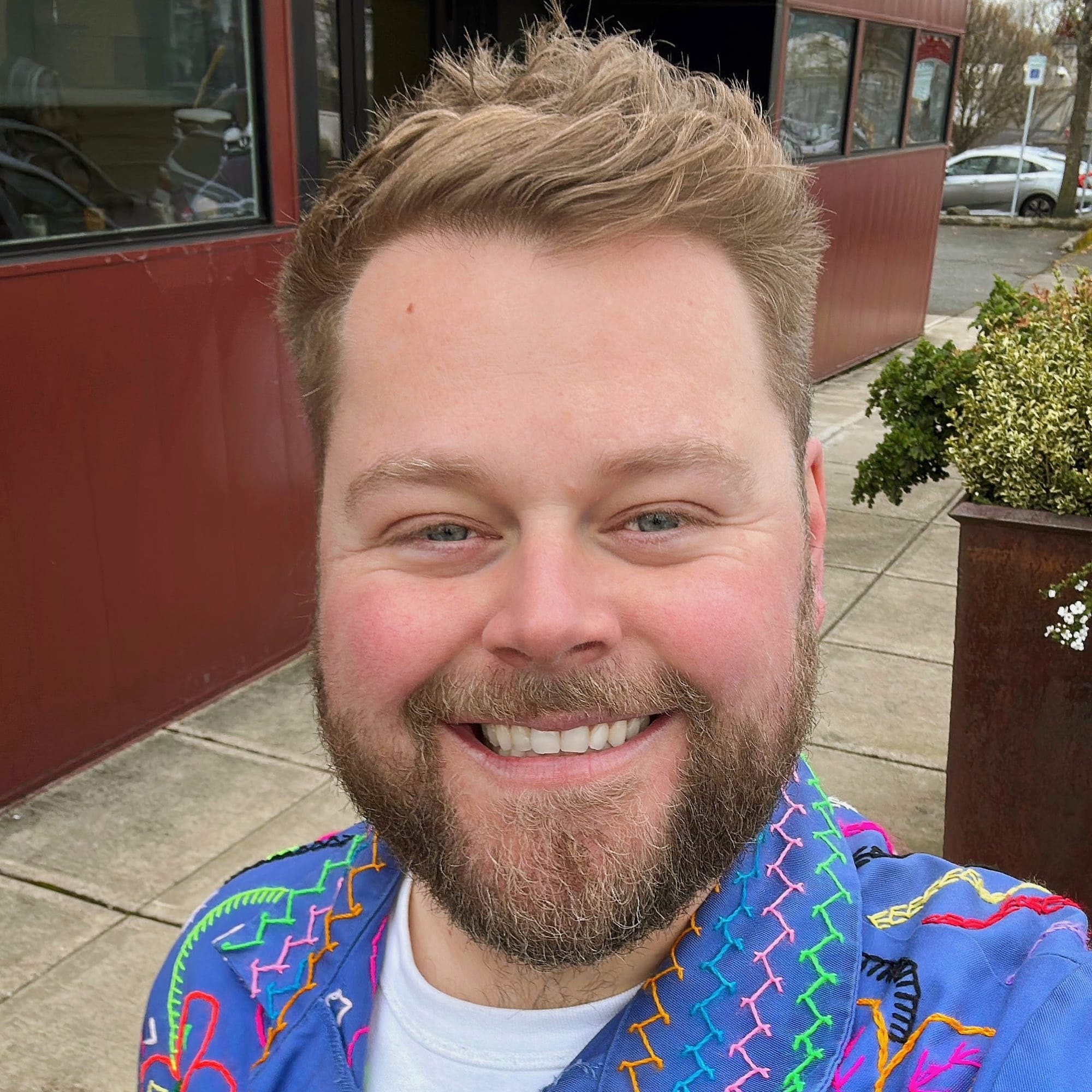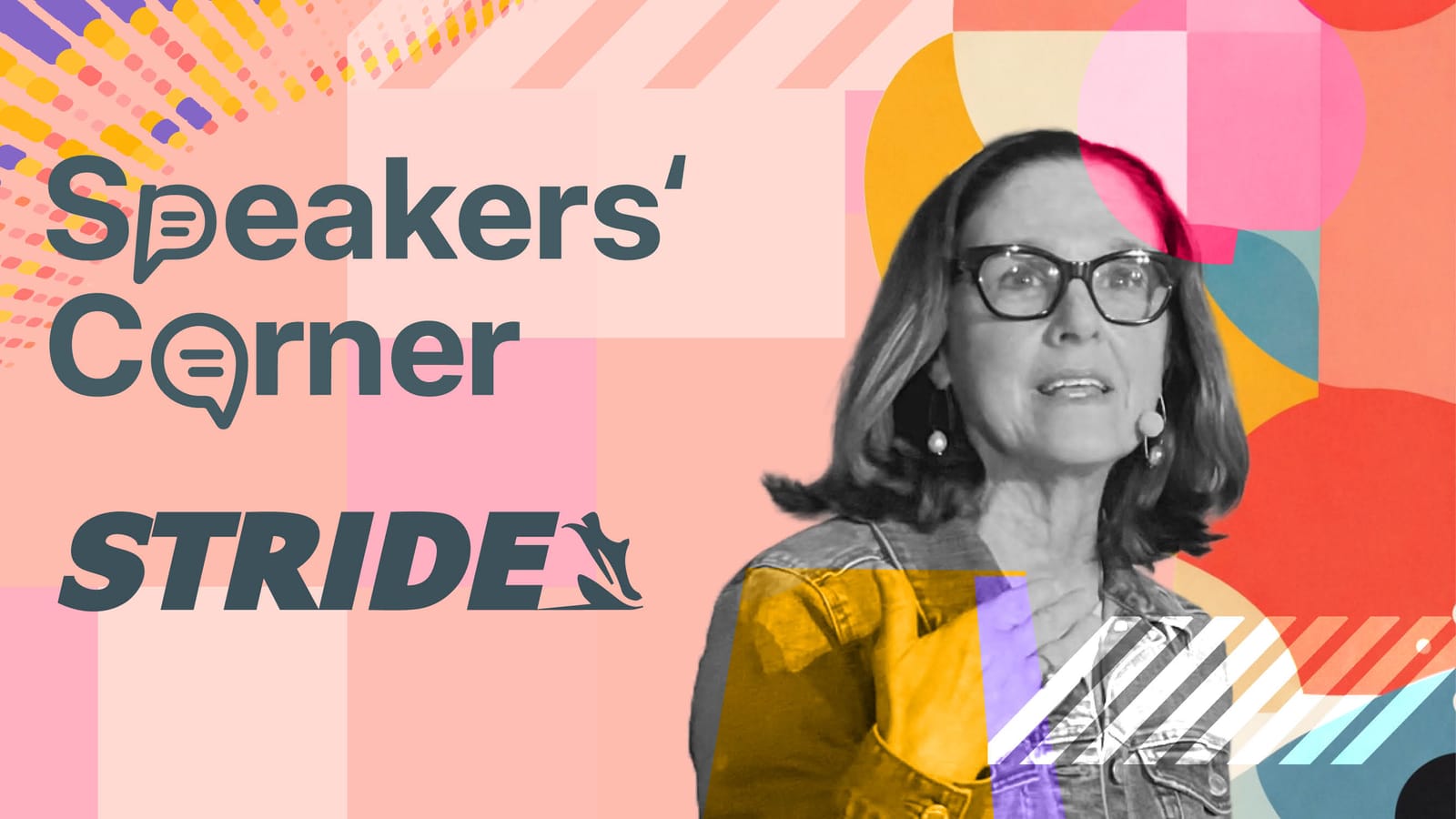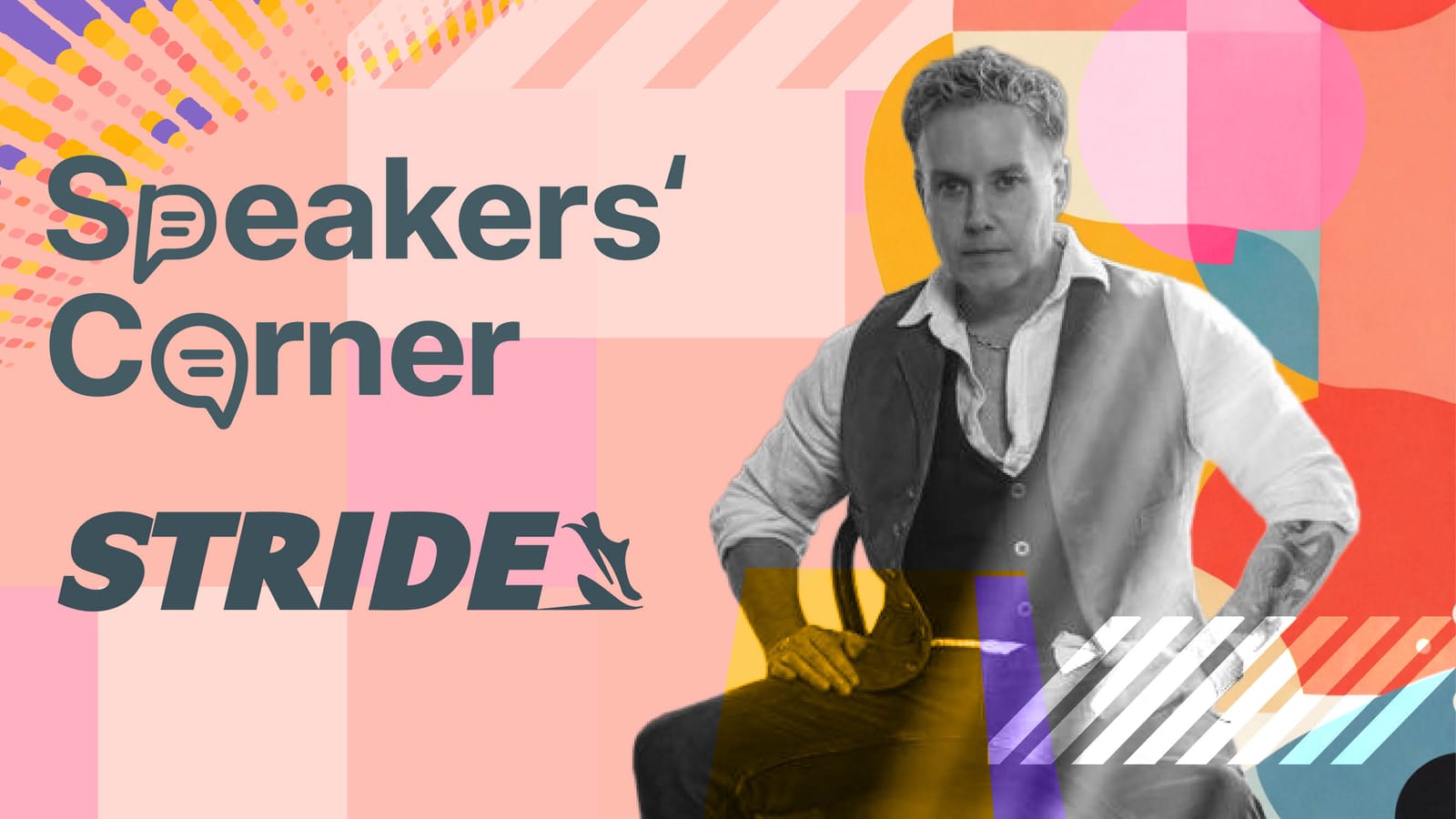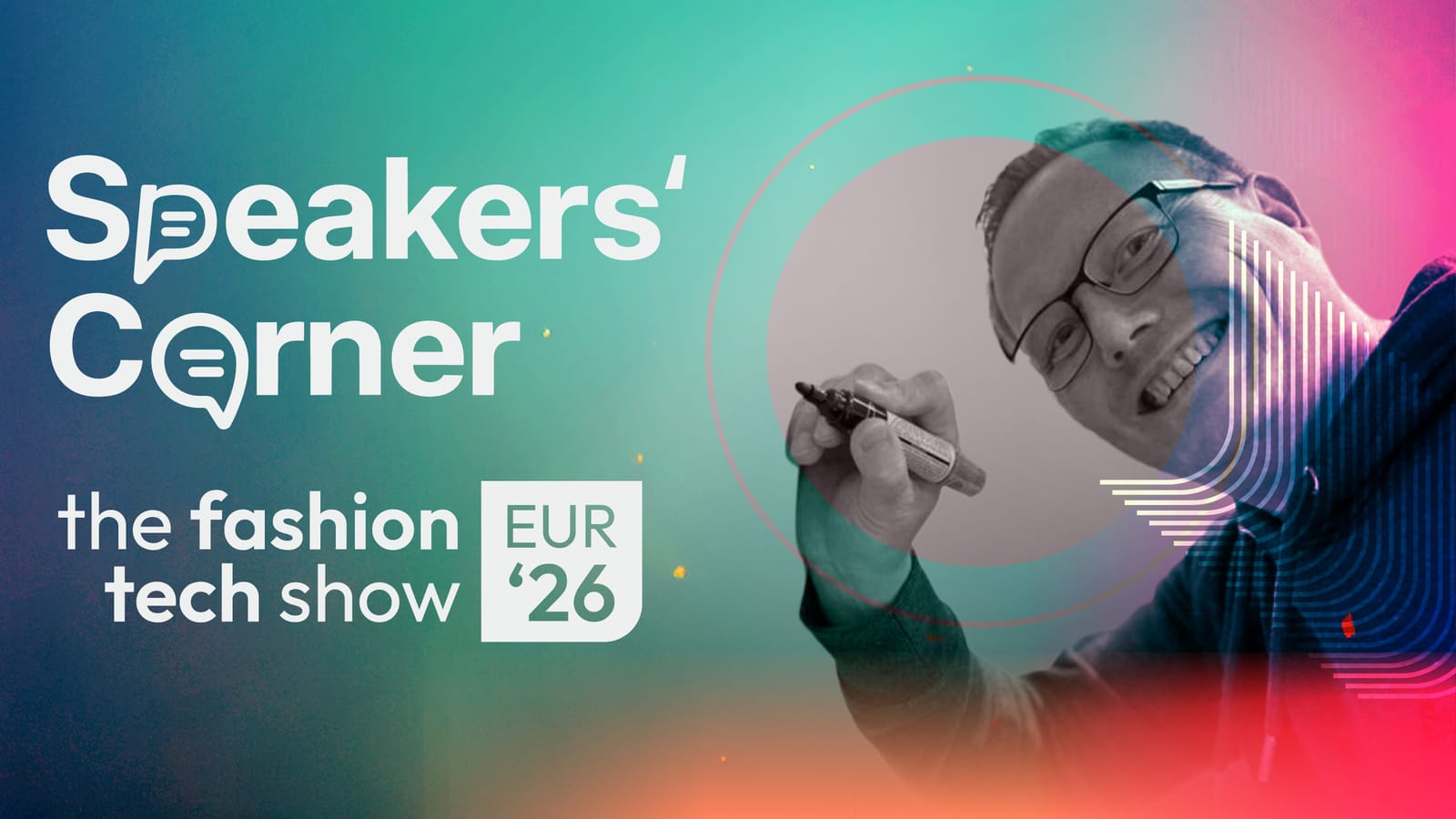In this in-depth Seamless conversation, I sit down with Sean Williams - co-founder of both the SOLEcial Studies CommUNITY Academy and the Obsessive Sneaker Disorder talk show - to unpack his remarkable 40-year journey through sneaker culture. What started as personal passion has evolved into a global mission: educating, advocating, and opening doors for underrepresented communities to enter an industry often locked behind invisible gates.
From the early days of sneaker podcasting to launching his own Brooklyn-based Academy, Sean shares hard truths about industry gatekeeping, explains why sneakers should be taught “from the feet up,” and makes a powerful case for why democratising technology access is key to the future of footwear.
With that, 'Fashion Futures: SOLEcial Studies, Class in Session' is officially underway...
🎥 Watch the full video interview below!
Don’t have time to watch the full video? Scroll down for a summary of key takeaways and noteworthy quotes.
Key Takeaways
1️⃣ Gatekeeping remains the industry’s biggest problem across hiring, education, media, and recognition
Sean repeatedly points to gatekeeping as the largest obstacle facing the footwear world, especially for women, people of colour, and non-design professionals. This shows up in intimidating group interviews, unnecessary “test projects” for job candidates, exclusion from educational programmes, and limited media visibility - even for organisations doing truly unique work.
We’re the only sneaker business and culture academy in the world - and still, we get gatekept.
2️⃣ Sneakers aren’t just designed, they’re built by systems
Many people entering the field focus on creative skills, but fail to grasp how many operational, legal, financial, and logistical layers sit behind every product. Understanding the full system is critical, yet many universities fail to prepare students for this reality.
Your piece of the process isn’t the process. It’s part of a system.
3️⃣ You don’t need to start over to work in footwear
Footwear companies hire for a wide range of non-design roles - legal, HR, finance, logistics, IP, vendor relations, and more. Many mid-career professionals could transition directly using existing skills, if they only realised the opportunity.
You literally can be taken as you are with your existing skill set.
4️⃣ The industry is stuck in a creative time loop and paying the price
Big brands have over-relied on retro product cycles for decades, leading to creative stagnation. Sean highlights how even his own kids were buying the same shoes that were on shelves when he was young. This refusal to innovate is now visible in poor financial performance and cultural disconnect.
Other industries invest in the future, but the sneaker industry doesn’t seem to care.
5️⃣ Independent brands are leading where big brands have stalled
Many former insiders are leaving big corporations to launch independent footwear brands that take creative risks, tell more meaningful stories, and experiment with new production models that large brands fail to grasp, or avoid entirely.
A lot of independent brands are founded by people who got fed up and jumped out the back of the robot.
6️⃣ Technology access is a form of equity and it starts now
Sean stresses that people of colour are too often locked out of emerging tech opportunities until after value has already been extracted by others. By introducing 3D printing, AI, and Gravity Sketch training into his academy, he’s ensuring that marginalised communities aren’t once again left behind as the industry evolves.
We want to give access while everything is still early, chaotic, and uncertain - not after the door closes.
7️⃣ IP protection isn’t optional - it's survival
Having seen too many small creators have their ideas stolen, Sean emphasises that protecting intellectual property must start at the concept stage, before investing time and money into building a brand.
An ounce of prevention is worth a pound of cure.
8️⃣ Career-switchers are an overlooked growth engine
During COVID, many professionals reassessed their careers. The footwear industry offers rare opportunities to switch industries without the need for retraining, opening up entirely new talent pools.
Your law degree isn’t just for where they told you it was - sneaker companies sue each other almost daily.
9️⃣ Women alumni are among the programme’s greatest success stories
SOLEcial Studies has helped many women secure meaningful roles in footwear, despite the industry’s historical exclusion. In 2023, they launched a new “Strictly for the Ladies” cohort - taught by women, for women - to create safe, supportive spaces for learning.
They’ve pressed on despite waking up every day knowing the industry doesn’t have a place for them.
🔟 Global expansion is the dream and alumni will help lead it
With a growing alumni network already spread across cities like Amsterdam, Paris, London, Houston, and LA, SOLEcial Studies would love to replicate its Brooklyn model globally - bringing its mission closer to underserved communities worldwide.
We have people in all these cities ready to teach.
Every sneaker is a story, and every box holds a new chapter.
Sean isn't just talking about sneakers; he uses them as a lens to expose much bigger questions about access, equity, and who gets to shape the future of an industry. His story is a reminder that while talent is everywhere, opportunity is still often locked behind invisible doors.
The sneaker industry sits at a crossroads: caught between decades-old product cycles and the need for new ideas; between a rapidly evolving technology stack and outdated hiring pipelines; between global cultural influence and narrow internal representation.
The work Sean and his team are doing challenges us to ask:
- Who gets early access to emerging tech?
- How do we prepare the full ecosystem of skills - not just designers - to thrive in footwear?
- And perhaps most importantly: how do we ensure that gatekeeping isn’t quietly re-coded into the next wave of innovation?
As the industry searches for what’s next, these aren’t side issues. They may be the questions that ultimately decide who thrives and who’s left behind.
A huge thank you to Sean for his time. Want to learn more and see how you could get involved? Reach out to Sean here!
Editor’s Note: 'Fashion Futures: Class in Session' is a Seamless series that dives into the schools, students, and educators reshaping the industry from the ground up. By exploring pioneering programmes, breakthrough research, and the bold ideas of tomorrow’s talent, we uncover how fashion education is evolving to meet the challenges and opportunities of a radically changing world.

